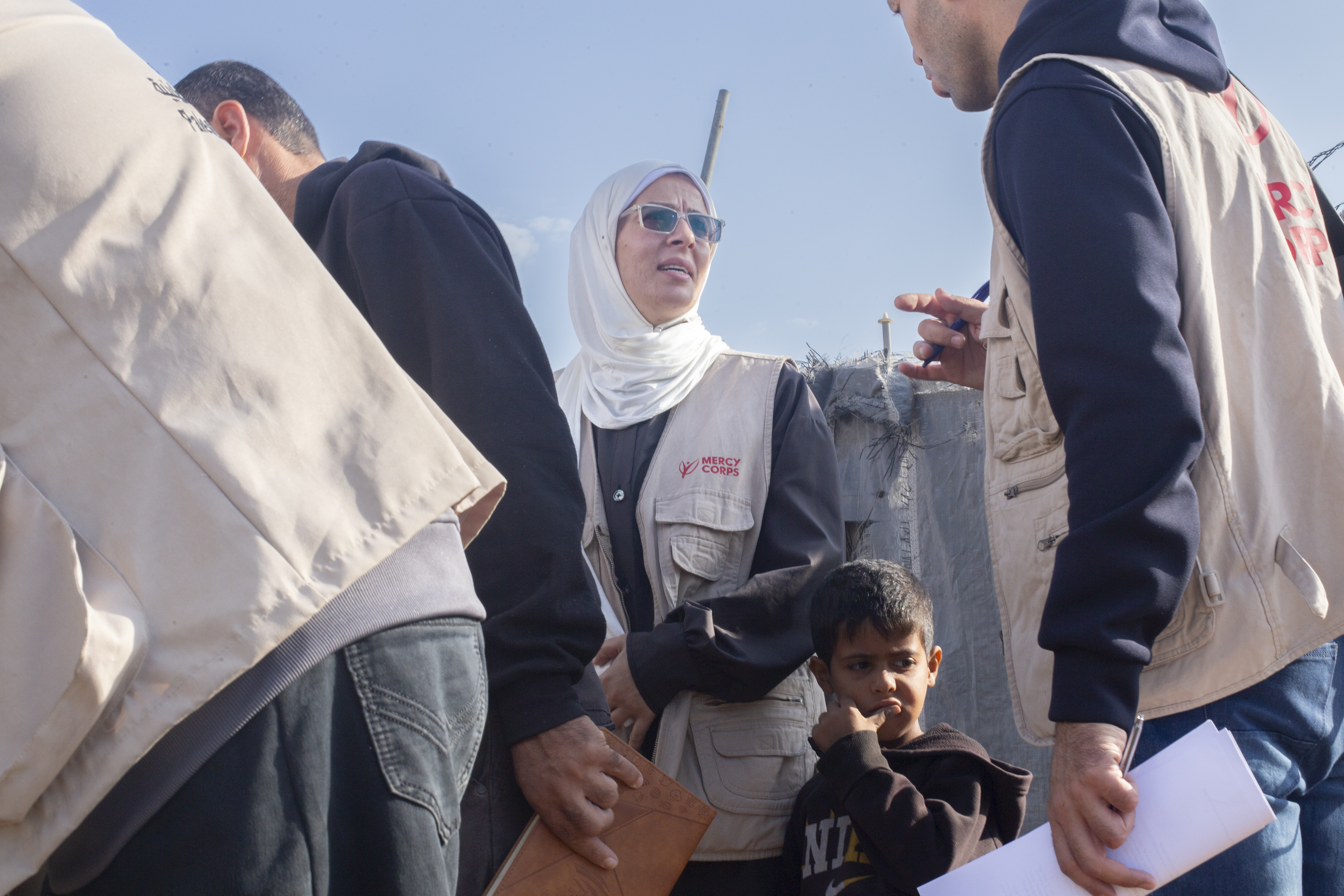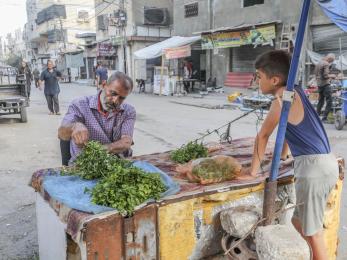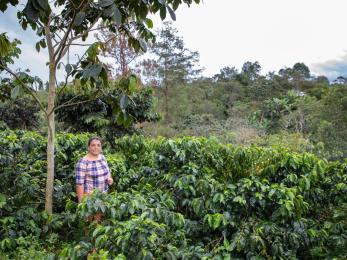Strength and connection: Helping communities flourish in 2024
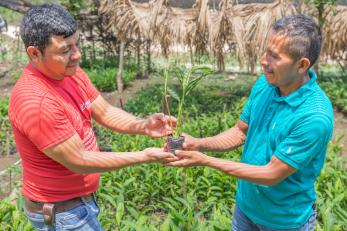
At Mercy Corps, we know that a vibrant tomorrow depends on what we do today. Our teams, communities we work with, and supporters take action and create generational change. We bring together bold ideas and the lived experience of people who know their communities best.
The heart of our work is partnering with communities to find locally led and sustainable solutions to crises that threaten progress and stability. In 2023, from the ongoing conflict in Ukraine to the devastating earthquakes in Syria and around the globe, Mercy Corps delivered critical support to meet urgent needs. And as the challenges of conflict and climate change persist, we are determined to continue delivering vital resources to help build up communities, and reshape the world we share.
In the last year, Mercy Corps reached nearly 30 million participants across 47 countries. In communities where we’ve forged partnerships with local organisations, we’re cultivating possibility by ensuring everyone has access to clean water, nutritious food, better economic opportunities, and a more peaceful tomorrow.
Economic opportunity
A brighter future is possible when everyone has the ability to establish sustainable livelihoods and make dignified choices. Through programmes offering support like skills training, workshops on financial best practices, and cash grants, participants are building expertise in their line of work or growing their small businesses.
Thriving businesses aren’t just good for the individuals and their families, they help people in their communities access goods and services that may have been previously unavailable. It also provides them an outlet to find opportunities where they currently live, rather than trying to find them elsewhere.
After being displaced due to years of conflict in Iraq, Ibrahim returned to Mosul and opened a photo studio. He doesn’t have any debt, and he shared that he was proud to be “supporting my parents with some of the income from my shop.” His success gave him the room to consider earning a degree, and he’s more optimistic about the future of Mosul. He’s building a home for his family and as Iraq restores the land and historical sites, Ibrahim feels that he can participate in the future of his country, too.
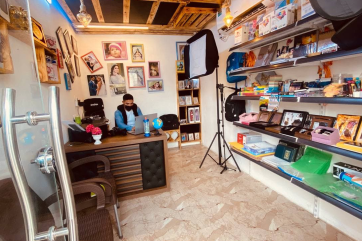
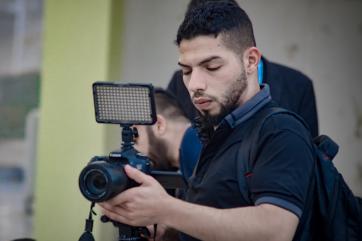
In Rocjá Puribal, Guatemala, an agricultural committee made up of 30 organic cardamom producers received support from Mercy Corps to help increase their farming yields. Climate change has created fluctuating weather patterns in the area. Farmers like the president of the committee, Francisco, can share their knowledge about analysing changes in soil pH, fertiliser, and the importance of introducing shade trees on their farmland. The Mercy Corps team was also able to connect Francisco and the other members of his agricultural committee with markets for dried cardamom, a product with a greater value because of its longer shelf life.
Water security
Access to clean and safe water is a human right. One in four people don’t have access to safe drinking water. Today, our team can help to deliver emergency drinking water where it's lacking in communities, and we help construct and strengthen management of water systems to ensure clean water is available tomorrow.
Water, sanitation, and hygiene (WASH) programming provides educational opportunities about water safety and health, but for many people it provides a sustainable, consistent source of water closer to their homes. It makes cooking, cleaning, and hydration easier for everyone. “I want the water to keep flowing and flowing, and never stop,” said Na’ima, who lives in Ganye Local Government Area in Nigeria. Mercy Corps teams worked with the local government to construct a 50,000-litre water facility, which provided affordable access to clean water for the community.
In Indonesia, Nurtoib, a farmer and religious teacher, was working in his rice fields when Mount Semeru, the highest volcano in the country, erupted last December. “We had nothing. We didn’t have anything. Everything was broken,” he said. The families had to evacuate, and once they relocated to a different village, were able to open temporary community buildings, including a school. Mercy Corps installed a water tank to help supply the school with clean, accessible water as the community worked to rebuild in their new home.
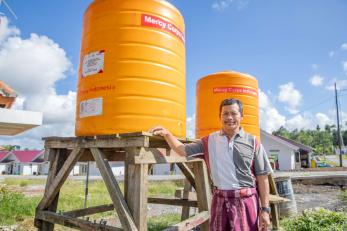
Food security
The global food crisis impacts hundreds of millions of people across the world. With increasing droughts and inconsistent weather patterns, many communities are navigating scarcity and extreme hunger. Where people are facing food insecurity, Mercy Corps supports communities with both immediate aid and long-term solutions. Our teams have been distributing cash directly to families so they can buy food, or helping people grow their own reliable gardens. From rural farming in Nepal, to organic bakers in Lebanon, it’s imperative to find ways to support communities from within to create locally led solutions to problems like climate change.
Many of the most heavily impacted communities are the least likely to have caused a negative impact on the environment. In Nepal, participants received support to decrease the impact of natural disasters and increase access to food and clean water. Communities built gabion walls and bamboo embankments to prevent floods and landslides to protect their crops. They used bioengineering to build spring-fed water tanks and pipes, decreasing their reliance on not-so-seasonal rainfall and enabling them to better sustain their land. Even with the uncertainty of climate change, farmers with regular access to water can have more control over their own crops to grow everything they need for their community and to maintain their livelihoods.
Mario, a baker in Zgharta, Lebanon, started making his own products because he wanted healthier, higher-quality food for his family. Lebanon currently imports 80% of the wheat used in the country, while they have thousands of acres of land that could be used to grow it instead. If farmers could plant on even half of the available 400,000 acres of land, they could reduce the need for imports and increase food security. By participating in a Mercy Corps programme, Mario connected with a number of farmers and he encouraged them to grow different wheat varieties. He expanded his business and received new machinery to increase production. If local farmers could grow more wheat, this would also support businesses, create jobs, and reduce unemployment. A small change today can make an increasingly large impact tomorrow.
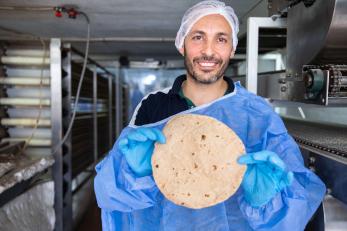
Peacebuilding and good governance
Conflict and violence threaten the positive change communities work toward, and our programming makes every effort to reduce these risks. Mercy Corps organises dialogues and grows civic engagement, so people can better shape the decisions that impact their lives. The causes of violent conflict are complex and interconnected—and so are the solutions. Our programmes work to address the root causes of conflict to reduce and prevent violence, and strengthen the pillars of long-term peace.
Around the world, land titling has caused conflict where boundaries and documentation are unclear. This uncertainty puts women, orphans, people with disabilities, and other vulnerable groups at risk of having their land stolen. An increasing issue due to conflict and drought, similar programmes in different countries provided training for participants to learn about how to apply for titles to their own land. In Afambo, Ethiopia, one participant, Ali Mohammed, helped to mediate land disputes because, “I want to contribute on my side to build peace.” In Karamoja, Uganda, a land titling programme helped to alleviate violence surrounding land ownership. Gertrude, a Mercy Corps participant, trained as a mediator and received a title for her land. Her efforts now provide the opportunity to care for her crops with family and build a secure future for her children. “Land should be owned by everyone whether you are a girl or a boy, or man or a woman,” she said.
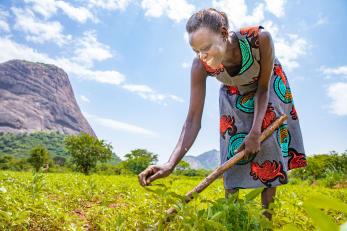
Growth is a collective process. Communities around the world struggle with crises that threaten progress, stability, and the future of their people. And even in the face of these challenges, every community has the ability to cope, adapt, and thrive, as long as we do it together. Our shared determination is what helps us to forge a new path forward.
In 2024, we invite you to help us support communities around the world as we build a more equitable future together. No one knows better than the people in these communities about what they need and what barriers have previously prevented them from accessing a solution. With Mercy Corps’ support, resources, and visibility, communities can implement their own locally led solutions. The support people receive gives them time, money, and energy to care for their families and to build a sustainable future of their own. Every community deserves to live full lives where they can safely express themselves, play, and build together.
